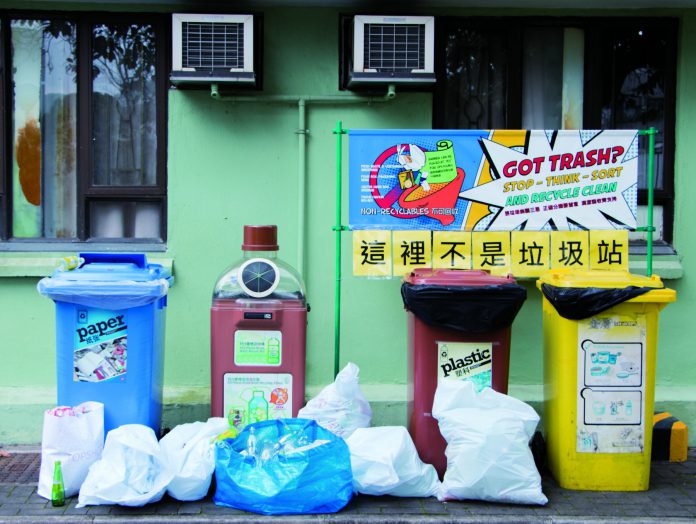Carrots and sticks are needed to motivate people to change their non-green habits
by Maggie Suen & Fiona Chan
On the “photo day” to celebrate her graduation from university last year, Sandy Lee Mei-shan who is now 22, was delighted to be given a very special bouquet. While other students had their arms full with elaborate floral arrangements wrapped in layers of paper and adorned with ribbons, Lee proudly held a vegetable bouquet made up of broccoli, yellow peppers, and sweetcorn wrapped in newspaper. To Lee it was a sign that her friends acknowledged her commitment to green values and put them into action.
Lee did receive flowers, but she made sure she used some of them to make environmentally friendly floral enzyme detergent while others became dried flowers. As a core member of CU X Rubbish, a green organisation established in 2013 at the Chinese University of Hong Kong, Lee does not just talk the talk, she walks the walk.

The group hopes to minimise waste at the university and one of their best-known activities is the Annual Hostel Check-out Recycling Scheme. Members collect items such as cooking utensils, clothes hangers and bedding that are no longer used at the end of a semester, and reserve them for their free second-hand goods exchange platform at the beginning of the next semester.
Their push to reuse second-hand materials has helped to reduce the amount of waste generated when students leave their hostels but Lee says many students only visit their booths to get stuff for free. They show little interest in listening to the group’s sharing and tips on how to reduce waste on a daily basis.
Lee’s experiences illustrate a common tendency to pay lip-service to or take advantage of efforts to encourage environmentally friendly living without a change in lifestyle.
Adrian Kwong Chi-hang, 25, finds himself facing similar difficulties to Lee. Kwong has worked in a multinational publishing company for two years. He has been concerned about the environment since he was a teenager and is acutely aware of many environmentally irresponsible practices in his workplace.
For instance, all printers in the office are set to print on single sides by default, and many of his colleagues simply dispose of used or even blank sheets of paper in regular bins instead of recycling bins. He also notices the huge amount of rubbish generated during lunchtime. Recyclable takeaway containers and utensils are tossed after lunch and the pantry bins are always overflowing. Those who bring their own lunches leave the tap water on continuously when they wash their lunch boxes; they use a lot of detergent and many paper napkins to clean one single container.
So Kwong took it upon himself to clean and collect all the recyclables from the pantry bins as well as the bins near each colleague’s seat before the cleaners came to clear them. After work, he takes the items to residential estates with credible established recycling programmes. He also makes sure one of the three pantry bins is always empty to save one plastic rubbish bag each day.







































